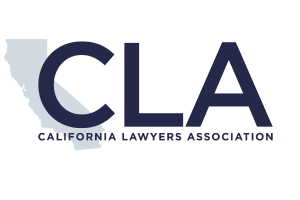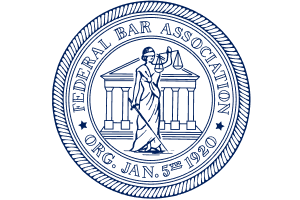Getting Results
Will the IRS or California Franchise Tax Board (FTB) Foreclose on Your House Due to a Tax Lien?
A tax lien from the Internal Revenue Service (IRS) or the California Franchise Tax Board (FTB) can be a daunting prospect for any homeowner. The fear of losing one’s home to foreclosure due to unpaid taxes is understandable, but the reality is more nuanced. While both the IRS and FTB have the legal authority to foreclose on a property subject to a tax lien, such actions are rare, particularly for primary residences.
Understanding Tax Liens
A tax lien is a legal claim placed on a taxpayer’s property by a government agency, such as the IRS or FTB, to secure payment of unpaid taxes. It attaches to all assets owned by the taxpayer, including real estate, personal property, and financial assets, and remains in place until the tax debt is paid or the lien expires.
IRS Tax Liens
Under Internal Revenue Code § 6321, a federal tax lien arises automatically when:
- The IRS assesses a tax liability.
- The IRS sends a Notice and Demand for Payment.
- The taxpayer fails to pay the debt in full within the specified timeframe.
Once the IRS files a Notice of Federal Tax Lien (NFTL) with the county recorder’s office or the California Secretary of State, the lien becomes public, notifying creditors of the government’s claim. This can affect the taxpayer’s ability to sell or refinance their home, as the lien must typically be satisfied at closing. The lien amount includes unpaid taxes, penalties, interest, and collection costs.
FTB Tax Liens
The California Franchise Tax Board issues state tax liens for unpaid state income taxes or other state tax obligations. Like federal liens, a state tax lien is statutory and attaches to all real and personal property in California when the taxpayer owes a tax debt. The FTB sends a Notice of Intent to Record a State Tax Lien (FTB 4932) at least 30 days before filing. If the debt remains unpaid, the FTB records a Notice of State Tax Lien with the county recorder or Secretary of State, making it public. The lien lasts for 10 years but can be extended if the FTB files a new notice before expiration.
Key Differences Between IRS and FTB Liens
| Aspect | IRS (Federal) Lien | FTB (State) Lien |
|---|---|---|
| Authority | Internal Revenue Code § 6321 | California Revenue and Taxation Code |
| Expiration | 10 years from assessment, automatically released unless refiled | 10 years from recording, can be extended by refiling |
| Priority | Determined by recording date; federal liens often take precedence over later liens | Determined by recording date; state liens may be subordinate to prior federal liens |
| Scope | Attaches to all property nationwide | Attaches to all property in California |
| Foreclosure Likelihood | Rare, especially for primary residences | Extremely rare for primary residences |
Can the IRS or FTB Foreclose on Your House?
Both the IRS and FTB have the legal authority to foreclose on a property to satisfy a tax lien, but foreclosure is not their preferred course of action. Below, we explore the processes, likelihood, and factors influencing foreclosure.
IRS Foreclosure Process
The IRS can initiate foreclosure under Internal Revenue Code § 6334, but this is rare, particularly for a taxpayer’s primary residence. The process involves:
- Assessment and Lien Filing: The IRS assesses the tax debt, sends a demand for payment, and files an NFTL if the debt remains unpaid.
- Evaluation of Equity: The IRS considers foreclosure only if the property has sufficient equity to cover superior liens (e.g., a mortgage) and the tax debt. For example, if a home is worth $500,000 with a $300,000 mortgage and a $100,000 tax lien, there may be enough equity ($200,000) to justify foreclosure.
- Judicial Foreclosure: The IRS must file a lawsuit in federal court to foreclose, as federal tax lien foreclosures are judicial (require court approval). This is governed by 26 U.S.C. § 7403.
- Redemption Period: After a foreclosure sale, the IRS has a 120-day redemption period during which it can reclaim the property if it does not exercise its rights, though this is uncommon.
Likelihood of IRS Foreclosure:
- The IRS rarely forecloses on primary residences due to public relations concerns and the availability of other collection methods, such as levies on bank accounts or wage garnishment.
- Foreclosure is more likely if the tax debt exceeds $5,000 and the taxpayer has significant equity in the property, luxury assets, or a history of non-compliance.
- In practice, the IRS often waits for the taxpayer to sell or refinance the property, at which point the lien is paid from the proceeds. For example, in a home sale, escrow ensures the IRS is paid before the taxpayer receives funds.
FTB Foreclosure Process
The FTB can issue a warrant to seize and sell property, including real estate, to satisfy a state tax lien, as authorized by California law. The process includes:
- Lien Filing: After sending notices and receiving no payment, the FTB files a Notice of State Tax Lien.
- Warrant Issuance: The FTB may issue a warrant, equivalent to a court judgment, allowing seizure of assets, including real property.
- Sale of Property: The FTB can sell the property at a public auction, similar to a tax deed sale, to recover the tax debt, penalties, and interest.
- Redemption Rights: California law provides limited redemption rights, but these vary by property type and are less defined than in property tax foreclosure cases.
Likelihood of FTB Foreclosure:
- The FTB “rarely ever” forecloses on primary residences or personal vehicles unless the tax debt is “extremely large” and the assets are “extravagant” (e.g., luxury homes or high-value vehicles).
- The FTB prioritizes less invasive collection methods, such as bank levies, wage garnishments, or payment plans. Foreclosure is a last resort due to its complexity and negative public perception.
- Like the IRS, the FTB typically waits for property sales or refinancing to collect the lien amount, as the lien prevents clear title transfer until satisfied.
Factors Influencing Foreclosure
| Factor | Impact on Foreclosure Likelihood |
|---|---|
| Tax Debt Amount | Large debts (e.g., >$100,000) increase the chance, but small debts rarely trigger foreclosure. |
| Equity in Property | High equity makes foreclosure more feasible; low or negative equity reduces likelihood. |
| Type of Property | Primary residences are rarely foreclosed; vacation homes or investment properties are more at risk. |
| Taxpayer Compliance | Non-responsive taxpayers or those with a history of evasion face higher risk. |
| Public Perception | Both agencies avoid foreclosing on primary homes due to negative media attention. |
| Alternative Collection | Availability of bank levies, wage garnishment, or payment plans reduces foreclosure need. |
Consequences of a Tax Lien
While foreclosure is rare, a tax lien has significant financial and practical impacts:
- Credit Impact: Both IRS and FTB liens become public records and may appear on credit reports, lowering credit scores and affecting loan eligibility.
- Property Transactions: A lien prevents selling or refinancing a home without paying the tax debt, as title companies require a clear title.
- Additional Costs: Penalties and interest accrue, increasing the debt. For example, IRS failure-to-pay penalties can be 0.5% per month, and FTB penalties can be similar.
- Other Collection Actions: If the lien remains unpaid, the IRS or FTB may levy bank accounts or garnish wages, which are more common than foreclosure.
How to Avoid or Resolve a Tax Lien
Preventing or resolving a tax lien is critical to avoiding the risk of foreclosure, however small. Below are strategies for dealing with IRS and FTB liens.
Preventing a Tax Lien
- Timely Tax Filing and Payment: File returns on time and pay taxes owed to avoid assessments. Self-employed individuals should ensure adequate withholding.
- Proactive Communication: Contact the IRS or FTB if you cannot pay in full. Early engagement can lead to payment plans before a tax lien is filed.
- Maintain Updated Records: Keep your address and tax documents current with both agencies to receive notices promptly.
Resolving an Existing Tax Lien
- Pay in Full: The fastest way to remove a lien is to pay the full tax debt, including penalties and interest. For the IRS, payment options include bank transfers, credit cards, or checks. The FTB offers similar options via MyFTB or mail. Once paid, the IRS releases the lien within 30 days, and the FTB within 40 days.
- Installment Agreement: Both agencies offer payment plans for those unable to pay in full:
- IRS: Eligible if the debt is under $50,000, with plans up to 72 months. For example, a $25,000 debt could be paid at ~$347/month.
- FTB: Available for debts under $25,000, payable within 60 months, with a $34 setup fee. Use FTB Form 3567, not IRS Form 9465.
- Certain IRS payment plans (e.g., direct debit with a balance under $25,000) may lead to lien withdrawal.
- Offer in Compromise (OIC): Settle the debt for less than owed if you can prove financial hardship:
- IRS: Based on ability to pay, assets, and income. Acceptance is rare (e.g., ~15% of applications in 2023).
- FTB: Considers income, assets, age, and dependents. An OIC may still result in a lien during processing, but it is released if accepted.
- Discharge or Subordination:
- Discharge: Removes the lien from a specific property (e.g., to allow a sale). The IRS may grant this if the sale proceeds cover the lien or the home has little equity.
- Subordination: Allows another lien (e.g., a mortgage) to take priority, facilitating refinancing. Both agencies may agree if it doesn’t jeopardize tax collection.
- Challenge the Lien: If the lien was filed in error (e.g., mistaken identity or paid debt), request a Certificate of Release. For the FTB, appeal within 30 days of the lien notice.
- Bankruptcy: Some tax debts may be discharged in bankruptcy, but payroll taxes and recent income taxes often survive. Liens may persist post-bankruptcy.
- Hardship Status:
- IRS: “Currently Not Collectible” status pauses collection if you prove financial hardship. The lien remains but is not enforced.
- FTB: Hardship status pauses collection for one year, requiring reapplication.
Strategic Considerations
To minimize the risk of a tax lien leading to foreclosure:
- Act Quickly: Respond to IRS or FTB notices within 30 days to avoid lien filing.
- Explore All Options: Payment plans or OICs are more accessible than foreclosure proceedings.
- Protect Equity: If your home has significant equity, consider selling voluntarily to pay the lien, as the IRS or FTB will be paid at closing.
Consult a Tax Attorney
Contact us today at 310-788-9820 to schedule a confidential consultation. Let our experienced tax attorneys assess your tax lien case and represent you to obtain a tax lien release.





















